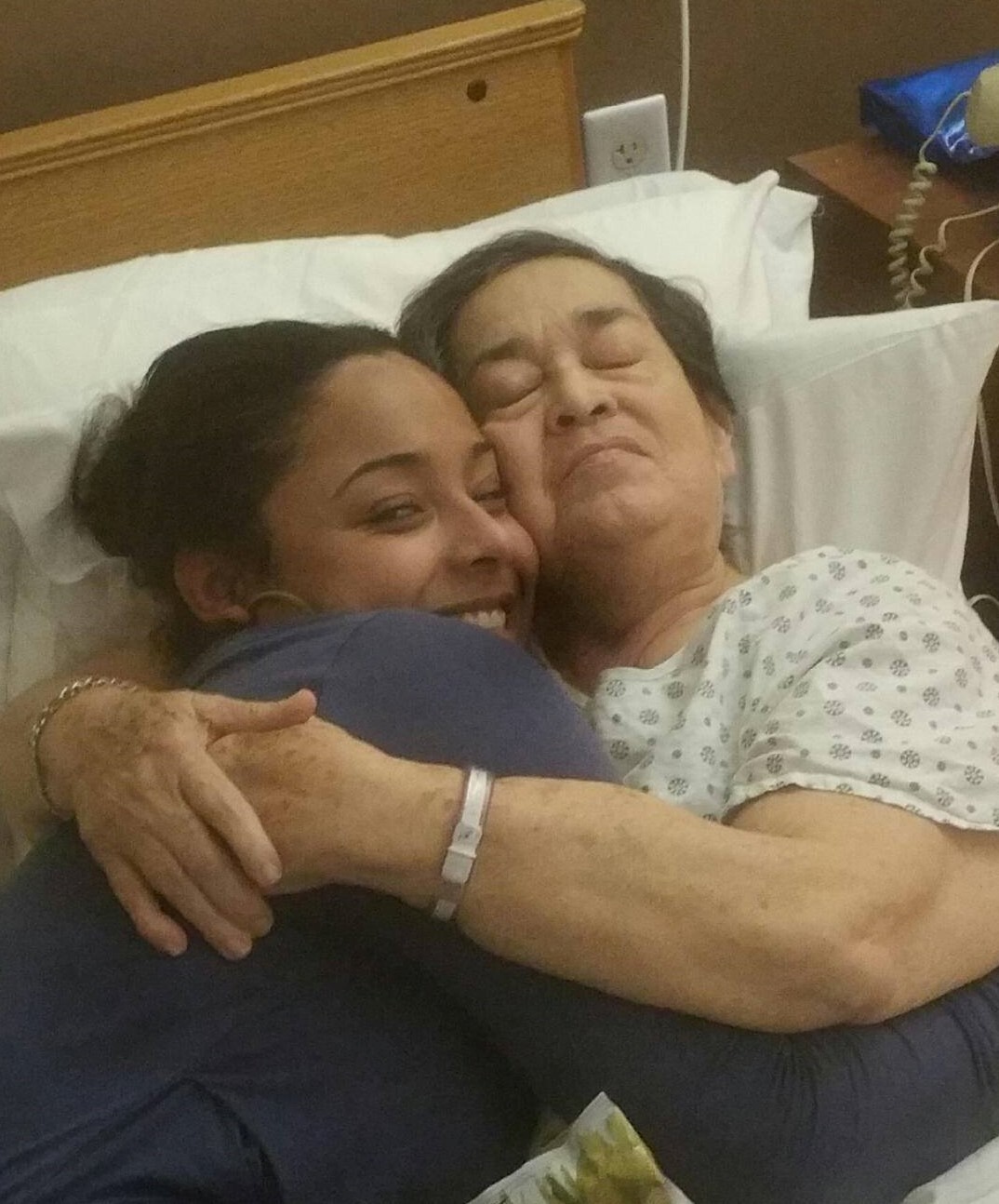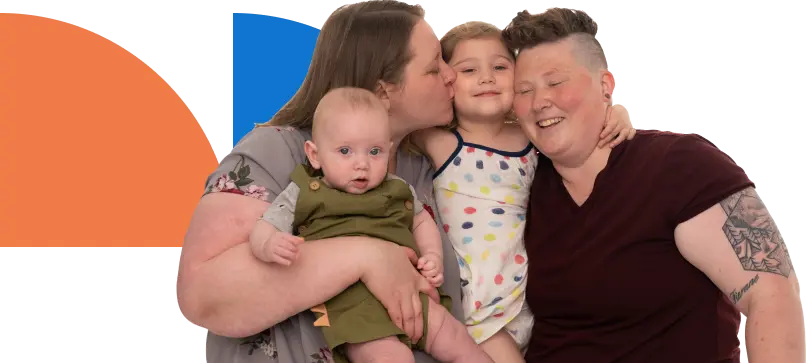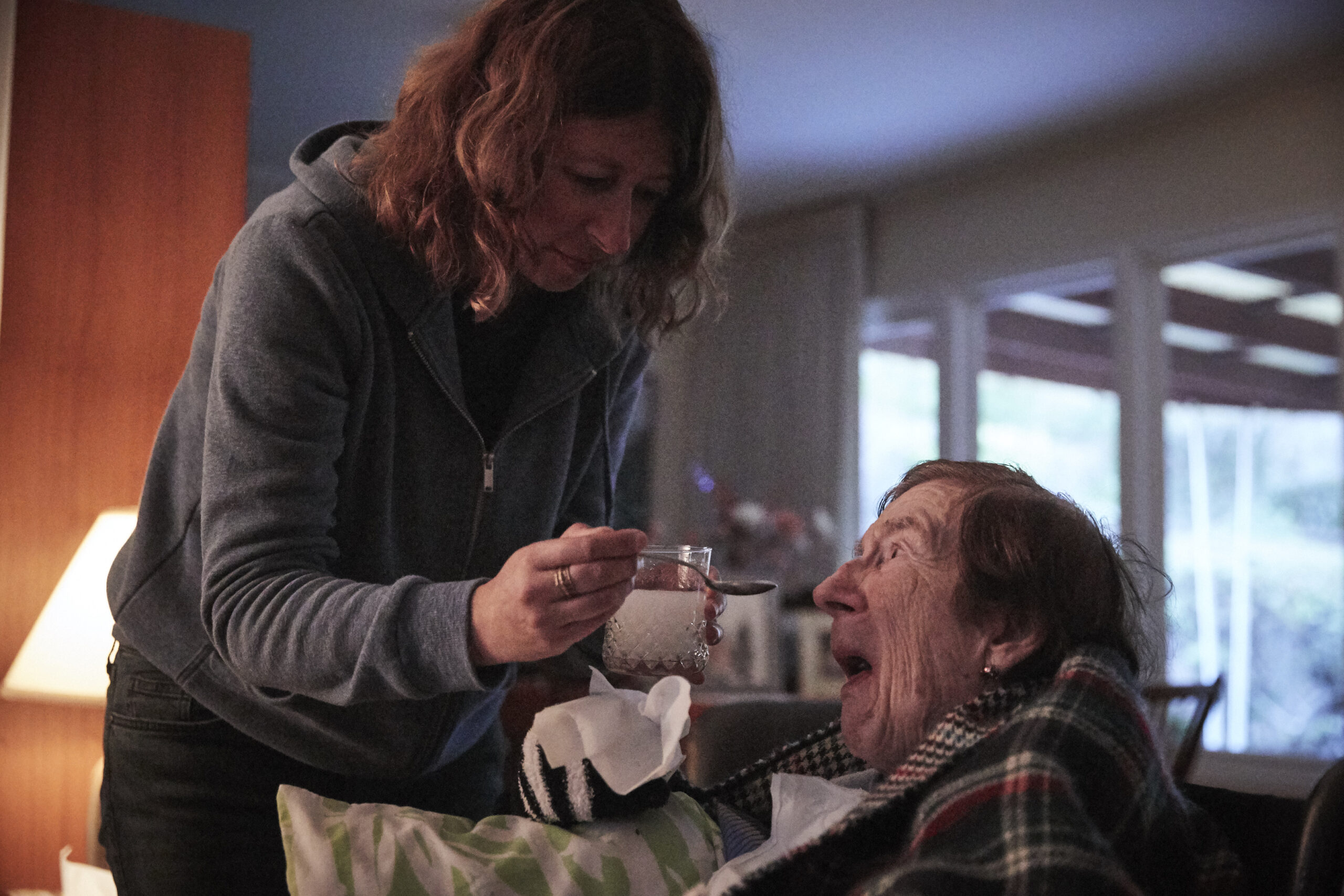
I started seeing a therapist in the fall of 2011 after graduating with my Bachelor’s degree the previous spring and finding that it was still profoundly challenging to find full time work in a post-recession world. At the same time I was muddling through some unresolved conflict in lost personal relationships and trying to figure out what I wanted – career wise, in love, my goals or vision for the future. Pretty normal young adult existentialism. I never expected to need the service for longer than a few months while I worked through this rough patch. The irony is that I started therapy just three months before my Abuelo suddenly passed away in Puerto Rico and without any warning or expectation of how our lives would abruptly change, also taking on the responsibility of caregiving for Abuelo’s wife and my maternal grandmother, my Tata.
My mom and I were just starting to look forward to a chapter where we could finally do the things we wanted to do. I thought I had a runway to a beautiful legal career one day, and who knows, maybe even run for office? I could live anywhere I wanted, do whatever I wanted to do and fulfill my greatest professional potential, which my family had sacrificed for generations to create the possibilities for. Yet over the ensuing months, I saw my dreams fade into the darkness as the realities of my grandmother’s caregiving needs started to unfold, realizing there was no possible way my mother could handle any of it by herself, because, like so many of you, we had very little help. I’m not sure if you can actually see the hope dwindling in a person’s eyes but when I look at pictures of myself from back then, I can certainly see the changes in my smile. The more time passed, the more I wished to be anyone other than me, because I didn’t feel like I could handle any more heartbreak over the future that was lost and the increasing intensity of the needs with very limited resources. It just wasn’t supposed to happen this way. I never expected to be caring for my family members long before I hit any of my own adult milestones, like moving out, finding a partner to build a life with, and starting a family. All of it was just gone and my spirit was totally crushed. I didn’t feel like I had much fight left in me.
I know, I may sound like a whiny little millennial complaining about how difficult it is to actually consider another person’s needs other than yourself. Or that you’re making excuses for not moving forward with poise and grace as life’s inevitable challenges get hurled at you – trust me, I’ve entertained those thoughts as well. More often than not, I was both angry at the lack of choices and overrun with guilt over wishing we had a way out of being the only support for my grandmother every single day. Let’s face it, if we’re really honest with ourselves, there’s nothing really about our culture that promotes or reconciles the individualistic model of self advancement and full accountability in one’s prosperity that aligns with growing care needs or the ways that your life and the decisions you make about the trajectory of it will likely need to shift over time.
There’s this absurd expectation that if you can’t work eight to ten hours a day while going to school for three to four hours several days a week, while volunteering (because you can’t honestly get a good job without work experience, even if the act of gaining that experience nearly kills you or leaves you broke in conjunction with the rest of your overflowing plate of responsibilities). Oh let’s not forget: be fit, be beautiful, be vibrant, be happy and fulfilled and grateful at all times, and be accommodating to all who require your assistance whenever needed, personal sanity be damned. If you can’t handle all of that then the problem is you, right? And nevermind the ways that we simultaneously purport to value mental health support as a country yet in no way mandate full coverage for psychological services let alone the ways that society can trivialize or worse, make fun of mental illness. We make it seem like it’s an embarrassment to be contained, put away, kept out of sight for fear of making our loved ones, our employers, and society as a whole even remotely uncomfortable with our pain.
Totally wrong, all of it. These dangerous and toxic ideologies are ingrained in us so deeply that we drown in a sea of sorrow over our own inadequacies when it was never our burden to carry alone. It’s not your fault if it feels like too much. It’s not hyperbole if the burdens of care you face leave you totally unsure of how to even get out of bed from one day to the next let alone meet the complex and evolving needs of a loved one. There’s nothing inherently weak about needing a break or more importantly, someone to talk to about the challenges you’re experiencing – in fact it may be the only way forward. My therapist was there to coach me through the darkest moments, the most exhausting weeks, the days I didn’t know how I was going to survive. She helped me legitimize my very real needs to create as much balance as possible by establishing boundaries and limitations giving me permission to ask for more. As an only child and only grandchild, asking for more help is hard because I don’t really have siblings or cousins that I can even reach out to. Yet with this new support, I found ways of talking to extended family members or my closest friends about assistance and respite when I needed it. Total game changer!
And yes, as hokey as it may sound, we also worked on finding gratitude in the moments that brought us together and allowed us to create memories that might not otherwise exist if we weren’t living in the same space full time. The greatest tragedy in the struggle to strike balance and find meaning in the mounting care challenges is that we’ve succumbed to a narrative that only sees care responsibilities as burdens to those who carry them.
Say it with me now, loud and proud: WE WILL ALL NEED CARE AND CAREGIVING AT SOME POINT IN OUR LIVES!
The reality is we give and receive care through our entire life spans and some of the most intimate moments in our day to day walk are the moments when we physically and emotionally support those we love most, the ways we show up when we’re needed. The ways our parents can help us raise our children and share invaluable history, tradition, and customs, reinforce the values we hope our little ones will possess one day. Caregiving is a gift that both benefits those receiving care as well as those giving it. Still, it is a tough burden to face when you never expected life to play out this way. Especially because our society seems hell bent on pushing its workforce, especially women, to the very limits of human sanity. It makes you feel like if you can’t juggle it all, all the time, there’s something wrong with you. There isn’t. But you do need to prioritize your mental wellness and invest in healing your spirit. You really can’t be of any use to others if you never take time for yourself – so you can be the very best version of yourself and the best caregiver to those who need you.
I will say that plugging into groups like Caring Across Generations also supplemented the hard work I was doing in therapy. It gave me a platform to connect with others who legitimized my experience and acknowledged, it’s not just me, there really isn’t enough support for families like ours. We need to create spaces for our shared pain so we can identify opportunities to do something about it. When you work through the dismay, the heartache, the understanding of what it is you need, something else almost miraculous happens – you find your voice. You might even find that you’re inspired to use it to advocate for what you need to lead a more balanced, fulfilled life. You’ll find the power to say ‘enough is enough’ and hold those in power accountable to creating a more sustainable lifestyle for all of us.
I hope my experience will bring you some comfort in knowing you are not alone, not by any means. There is nothing weak about seeking guidance from the licensed professionals who are trained to help you understand how you got here, what about your behavior or thought process is driven by past or current traumas, including those related to caregiving, and how to navigate these emotional landmines in ways that allow us to still fulfill our greatest potential. You might even, dare to dream, find yourself for the first time in the process. Imagine what greatness you’ll be capable of after you give yourself permission to say ‘I need help’. How would I know? I’m here connecting with you now, aren’t I? A decade later and I’ve found purpose I never could have imagined out of a crisis that almost broke me and I attribute that profound evolution to the role mental health services have played in my life. Go find your healing friends, you deserve to find your peace as well.
Rebekah Alexander is a caregiver, former Care Fellow, and the Individual Giving Manager at Caring Across Generations.



